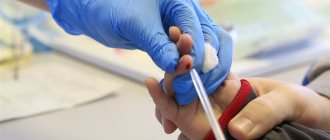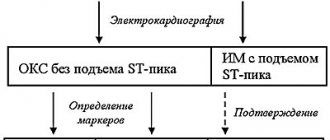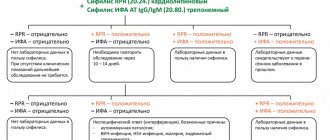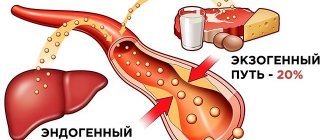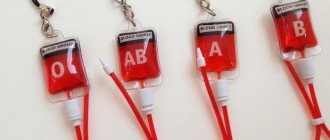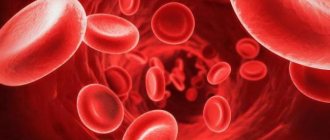Home — Rules for preparing a patient for laboratory and ultrasound examinations — Preparation for blood tests
Food restrictions | Capillary blood | General clinical analysis | Biochemistry | Coagulogram | Hormones | Infections | Glucose tolerance test | TSH | Vitamin D
Blood counts can change significantly throughout the day, so it is recommended to take tests in the morning. For this period, reference intervals for many laboratory parameters have been calculated. This is especially important for hormonal studies.
- All blood tests are done before radiography, ultrasound and physiotherapeutic procedures.
- Do not smoke 2 hours before donating blood.
- For 2-3 days, do not overeat, especially fatty foods, avoid alcohol, intense physical activity, and also do not visit the bathhouse or sauna.
Food restrictions:
- On an empty stomach: at least 4 hours after the last (not large!) meal.
- Strictly on an empty stomach: at least 8 hours after the last meal. In newborns and children in the first months of life, blood sampling is allowed no earlier than 2 hours after eating.
- Fasting: no food intake for at least 12-14 hours.
- Drinking regime . Drinking water does not affect blood counts, so drinking water is allowed (not mineral, non-carbonated). Juice, tea, coffee are prohibited.
What to eat before donating blood
For two days, do not drink alcoholic beverages; the day before, exclude fatty, fried, spicy, smoked, dairy products, eggs, butter from your diet; it is recommended - sweet tea, jam, bread, crackers, dried cereals, boiled cereals, pasta in water without oil, juices , fruit drinks, compotes, mineral water, vegetables, fruits (except bananas).
Compliance with these requirements is especially important if you are donating platelets or plasma. Neglecting them will not allow high-quality separation of your blood (separation of the necessary components) and will make donation impossible.
Hormones
Blood collection is carried out strictly on an empty stomach: at least 8 hours must pass from the last meal (preferably at least 12 hours). You are allowed to drink water (non-mineral, non-carbonated). It is forbidden to drink juice, tea, coffee. 2-3 days before the test, do not overeat, especially fatty foods. Avoid alcohol, intense physical activity, and do not visit the sauna or bathhouse.
- On the day of blood collection, avoid taking medications; if withdrawal is not possible, inform the laboratory.
- When studying hormones over time, it is advisable to take blood samples at the same time of day.
- Some hormones need to be taken by women on certain days of the menstrual cycle. This information can be obtained from your doctor.
Attention!Q Blood collection for cortisol is carried out strictly on an empty stomach, strictly in the interval from 8:00 to 11:00 (the exact time of venipuncture is indicated).
Taking blood from children under 14 years of age
Psychological preparation of the child
- The main requirement for mom is to remain completely calm. Children, especially toddlers, feel their mother’s mood very keenly and also begin to get nervous if she is afraid of the upcoming procedure. With a child who has already reached preschool or school age, discuss what will happen. You should not scare him, especially if he is donating blood for the first time. You can also warn that the child is likely to experience discomfort.
- Make sure your child is not bored before the blood is drawn. Take with you a book, his favorite toy, a coloring book with markers - depending on the age of the child. This will not only take up his time, but will also not allow him to concentrate on the fear of the upcoming procedure.
- Decide whether you need to be present in the doctor's office during the test. Of course, it will be needed if the child is very small, but for some schoolchildren, even in the lower grades, the presence of parents can only interfere and provoke crying or protest. Focus on the child's psychological characteristics.
- During the blood collection procedure, small children should be held in your arms. If a child feels the warmth and protection of his mother, he reflexively calms down even in an unfamiliar and frightening environment.
- It is advisable to begin drawing blood not immediately after entering the treatment room. You need to give the baby a couple of minutes to get acquainted with the situation and the stranger who will take his hands.
Preparation before donating blood
- Remember that the best time to take a blood test is in the morning; the standards for all tests were developed specifically for the time interval from 8 to 11 am.
- Donating blood for testing should be strictly on an empty stomach. At least 8 hours must pass between the last meal and the blood draw. It is quite difficult to adhere to this rule with children, but it is quite possible. Drinking juices, tea, or eating cookies in the morning is prohibited, as this can significantly distort the results. You can only drink water. Take something tasty with you so that you can eat immediately after leaving the treatment room.
- The child's diet 1-2 days before the blood test should exclude fatty and fried foods and sweets.
- For better blood filling of the vessels, it is advisable to give the child 100-200 ml of water to drink 30 minutes before blood sampling (for children from 1 year).
- After the analysis, think about how you can please your child for good behavior. A small surprise gift will help smooth out the unpleasant impressions of the hospital.
Glucose tolerance test
Attention: A glucose tolerance test is prescribed only after consulting a doctor. This study is not performed for patients with type 1 diabetes mellitus.
Blood collection is carried out in the morning, after fasting: at least 12-14 hours must pass from the last meal.
- Before performing the glucose tolerance test, follow a diet for 3 days (no more than 150 grams of carbohydrates per day), exclude intense physical activity, and do not visit the bathhouse or sauna.
- 3 days before the test, stop thiazide diuretics, contraceptives and glucocorticoids (in consultation with your doctor).
- Do not drink water or smoke during the study. Repeated blood sampling is carried out 1 hour and 2 hours after the “load” of glucose.
Can drinking water affect research results?
If a general blood test is performed, the amount of liquid taken, if it is clean drinking water without dyes and sweeteners, does not matter. In this regard, even a large amount of it will not affect the results. However, in a number of other cases the situation is different - for example, during a biochemical study, as well as tests to establish cholesterol and hormone levels, it is forbidden to drink more than a couple of sips. Otherwise, the blood may become more liquid, which in turn will affect the performance.
This is due to the fact that water consists of chemical elements, therefore, under certain conditions it creates an error, including when studying hormonal parameters. The doctor must decide to prohibit the intake of a certain amount of water, based on the type of examination being planned and its direction.
Preparing for a thyroid-stimulating hormone (TSH) test
TSH levels are the most sensitive test for assessing thyroid function. However, it remains the most frequently deviating from the reference interval among all hormonal studies. To obtain reliable results, in addition to the general rules for preparing for laboratory tests, it is important to follow the rules below:
- The TSH level changes significantly during the day: its highest concentration is determined in the morning, and its minimum in the evening. You should donate blood at the same time, especially in case of repeated tests, since the time of blood donation plays an important role in the interpretation of the TSH level.
- In the case of thyroid hormone replacement therapy, it is necessary to take the drug after drawing blood for testing. Taking thyroxine and iodine the day before the test does not affect the TSH concentration. It is advisable to carry out repeated studies of TSH levels in order to monitor therapy no earlier than 6 weeks after changing the dose or type of drug.
- It must be remembered that the TSH result may be distorted by the effects of medications taken or the products of their metabolism. Before donating blood for analysis, you should consult your doctor about the possibility of limiting the intake of medications during the period of preparation for the study. It is recommended that you stop taking medications, including dietary supplements, before the study. If it is impossible to stop taking medications, you should provide the name of the drug and the time of its last use when donating blood.
- The thyroid gland is associated with the work of many organ systems, disorders in which can affect the secretion of the hormone: acute and chronic stress, acute infectious diseases, disorders of lipid and vitamin metabolism, leading to excess cholesterol, homocysteine, as well as disturbances in sleep patterns and wakefulness at night, which disrupt the normal rhythm of TSH secretion. The influence of these conditions must be taken into account when interpreting the results if it is not possible to postpone the study to a later date.
- Different research methods may be used in different laboratories, therefore, in order to correctly evaluate the research results, it is necessary to conduct research in the same laboratory and on the same analytical system.
Types of blood tests
Three main types of blood tests are common: general, biochemical, and sugar testing.
- General analysis allows you to obtain information on several parameters at once - it can include from 5 to 24 studied indicators. These include hemoglobin, red blood cells, platelets and leukocytes.
- Biochemical analysis allows you to assess the functioning of internal organs and the state of the metabolic process.
- Using a sugar test, the level of glucose in the blood is established, which is considered a key indicator in the diagnosis and subsequent treatment of diabetes.
Blood tests for hormones, AIDS or HIV infection are also common.
Memo to patients
It should be remembered that one of the important components of the recovery process is a correctly established diagnosis. But it cannot always be determined if the preparation for the prescribed tests was done incorrectly or was not of sufficient quality. Therefore, you should not neglect the recommendations given by your doctor or nurse so that you do not have to undergo the test again.
If something is unclear, it is better to ask again - now there are many clinics not only in Moscow, but also in other cities of the Russian Federation, where specialists will tell you the answer to any question regarding all types of laboratory tests. The main thing is not to forget that taking care of your health is a personal matter; entrusting it to someone else is not always advisable.
Indications for analysis
Symptoms that may be caused by low blood sugar:
- constant lethargy, fatigue;
- increased sweating;
- anxiety;
- attacks of hunger.
Symptoms that high sugar levels can cause:
- rapid breathing;
- dry mouth, thirst;
- dry skin;
- decreased clarity of vision;
- frequent urge to urinate;
- poor wound healing;
- itching of the skin and mucous membranes;
- weight loss.
If you notice some of the listed symptoms, make an appointment with a general practitioner, he will conduct a diagnosis and write a referral for the necessary analysis.
With both deviations from the norm, an unstable mental state and mood swings may be observed.
Blood sugar levels
lThe normal blood sugar level for an adult is:
- 3.3–5.5 mmol/l (when collecting capillary blood)
- 3.7–6.1 mmol/l (at sampling)
If the level is exceeded above 6.1 mmol/l, it is necessary to be examined.
In order for your results to be reliable, you need proper preparation for the sugar test.
What does "on an empty stomach" mean?
Despite the fact that most people by the concept of “fasting” mean refusing food, in practice this is not the case.
Reference! Not only food can cause changes in metabolic processes in the body, but also various drinks, even those that are not high-calorie.
Some liquids contain various chemicals that provoke the production of hormones and enzymes, thereby triggering various metabolic processes, followed by the release of products of their synthesis and breakdown into the blood. For example, the liquids listed below can act as follows.
Sparkling water. The bubbles we are familiar with are formed by CO2 - carbon dioxide. There is a special enzyme in human blood - carbonic anhydrase. The task of this substance is to ensure the conversion of excess carbon dioxide released due to respiration. Changes in the content of respiratory enzymes and their activity clearly affect the biochemistry of the blood, but this will not interfere with the general analysis.
Mineral water. Mineral table water, in addition to carbon dioxide, contains an almost complete list of chemical elements present in the periodic table: iron, sodium, magnesium, chlorine, calcium, sulfates, bicarbonates. All of them affect biochemical processes, as a result of which mineral water, unless it is a clinical blood test, should be abandoned.
Tea and coffee. Tea is known to contain a substance called tannin, which can lead to an increase in blood viscosity, so drinking a large amount of this drink can interfere with the blood collection procedure itself.
Caffeine triggers many chemical reactions in the body, the main ones of which are aimed at activating brain activity, increasing performance and improving overall tone. That is, large-scale changes are occurring, so even before a general blood test you should not drink the so-called “traditional morning cup of coffee.”
Drinking coffee before donating blood is not recommended
Alcohol. The effect of ethyl alcohol on metabolic processes is even stronger than that of tannin or caffeine. For example, alcohol-containing drinks reduce the quality of blood clotting, and if you need to go to the laboratory in the morning to donate blood, drinking alcohol the evening before the test is strictly prohibited.
Juices and fresh juices. Fruit and vegetable juices and fresh juices contain a lot of carbohydrates, presented in the form of glucose and fructose. They are absorbed very quickly and affect not only sugar levels - they can also cause a decrease in the quality of the biomaterial sample.
Regular clean water. This is the only substance that is not able to affect the indicators during most studies, and before a general blood test you are allowed to drink it, but not in too large quantities. Excessive water consumption will reduce the concentration of formed elements and distort diagnostic results.
Reference! Before visiting the laboratory, for all tests except biochemical tests, it is recommended to drink 1 glass of still water - this will slightly thin the blood and eliminate possible problems with collecting biomaterial.
